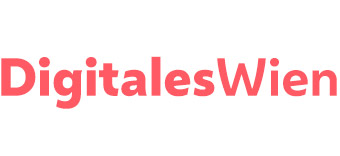Open Government in Vienna
The City of Vienna has committed itself to the concept of Open Government Data – an open and transparent system that makes city data available to the public for their further use. The city administration has thus decided to its open data records to the population, businesses and the scientific community. Relevant data range from statistics and geographic data or traffic and transport to economic figures. Personal data are strictly excluded from the Open Data concept. The main prerequisite for data to be included is their machine readability in open formats.
Open and freely accessible data allow for a broad and democratic exchange of knowledge, thus facilitating the dialogue between local citizens and the administrative authority. At the open data improve participation and communication, and are therefore conducive to innovation and development.
The data catalogue is being expanded continuously. The “rules” to be followed by users are very simple. The data is published under a Creative Commons Licence (CC BY 4.0). It can be used without any further restrictions, provided that the source is stated clearly. At the moment the data portal is available only in German, but the possibility of an English version is under consideration.
Open Government Implementation Model
The City of Vienna and the KDZ – Centre for Public Administration Research developed an Open Government process model at the start of the Open Government Data initiative of the City of Vienna. To make available the findings and proposals to a wider public, the internal strategy document was further developed and released as open government process model in July 2011 under http://www.kdz.or.at/de/open-government-vorgehensmodell.
The process model was reused by authorities at home and abroad as a basis for their open government initiatives and has over 8,000 downloads. The version 2.0 was provided in a revised version 2.5 for public consultation and has now been released in version 3.0 in German and English.
Open Government Data – a key pillar of the Vienna Open Government Strategy
In opening its data records to the public, the City of Vienna is taking yet another important step towards implementing its Open Government Strategy. The term “Open Government” refers to the city’s decision to create administrative structures based on more transparency and participation, enabling closer cooperation with the local population, local businesses and the scientific community. Due to the new structures, the city administration makes increased use of internet technology. A summary of the city’s Open Government activities are available online.
Open Communication and Transparency
The Open Government blog also comprises an open communication with experts from the city administration. In addition there is a standard form for contacting the City of Vienna and Open Government Vienna is active in Social Media:
Participation
In a map the ongoing participation projects in Vienna are presented, in which the City of Vienna or set up by their company are in a job or supervisory relationship to the project.
Blockchain in Vienna
The City of Vienna sees tremendous opportunities for the future of the administrative administration in the currently much discussed Blockchain technology. Transparency, openness and participation are the leading motifs for our thoughts and actions concerning the digitization of the city. These so-called ‘Viennese principles’ are supported by the use of blockchain technology.
The City of Vienna has therefore decided to actively use blockchain technology for the first time.
The first blockchain pilot “OGD – Change Protocol and Notarization” enables independent checks to be made as to whether data records of the city of Vienna existed at a specific time.
Specifically, the project aims to ensure the integrity of OGD (Open Government Data).
The checksums of OGD of the city of Vienna are stored in public blockchains and can be retrieved by the interested public. The users can thus view and check the authenticity and history of the data independently of an intermediary institution.
The implementation of the pilot costs 30 person-days of the City’s ICT department, as well as 3 person-days consultation and know – how transfer by EY (Ernst & Young).
The City of Vienna also plans to test further blockchain applications and proactively promote technological development within the framework of the “Digital City Wien”. “The application of blockchain solutions in administration seems paradoxical at first, because it questions the authority as a mediator between state and citizens,” says Ulrike Huemer, CIO (Chief Information Officer) of the City of Vienna. “We, on the other hand, see great potential in terms of simplifying administrative processes and democratic interaction.”




